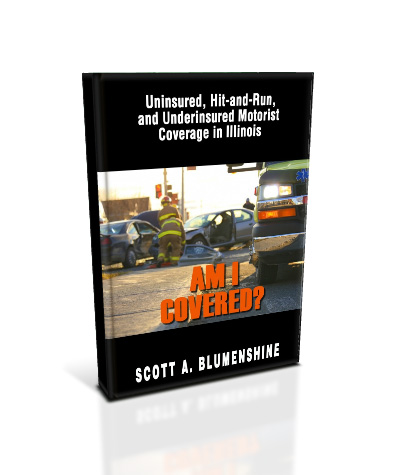If you are in a car crash that was the fault of another driver, and that driver was driving on behalf of his employer, the employer may be liable for your injuries. That is true whether the employee was driving his own vehicle or his employer’s vehicle. Under the principle of vicarious liability, Illinois law holds employers responsible for the negligent acts of their employees when employees are acting “in the course of employment.”
A company may try to avoid responsibility for the negligent actions of the driver by claiming the employee was not acting within the scope of employment. Even if the corporation proves the person was not acting within the scope of employment, you may still win your case if you can prove the employer was negligent in hiring, training or supervising the employee.
Proving the Employee Was Acting Within the Scope of Employment
Illinois law has adopted the “Restatement of Agency” in determining whether a person was acting within the scope of employment. Adapting the requirements to a driver of a company car, the employee must:
- Be driving on behalf of the employer when the accident occurred;
- The accident must have occurred “substantially within the authorized time and space” allotted to the task by the employer;
- The negligent driver was driving for a purpose that would in some way benefit the employer.
Courts have recognized possible defenses posed by companies trying to avoid responsibility. Common defenses are that the driver was on a “detour” or “frolic.” The court must determine whether or not a driver was really acting within the scope of employment. A detour is a slight deviation from the employer instructions. A frolic is when the employee acts on his own and is not acting on behalf of the employer.
Examples of a detour: If a company driver is on her way to deliver a package for her employer and stops for a cup of coffee, then causes an accident as they are driving out of the parking lot, that is generally considered just a detour and the employer is liable for the accident.
Examples of a frolic: A company gives its employees cars to drive for sales calls, and encourages them to take potential clients out to dinner and drinks. On the way home from such an event, the employee causes an accident. The employer will be liable for the accident because it occurred during the course of employment. But, if the driver is on the way home from the sales dinner and stops off at a friend’s house for a couple of hours, then has an accident on the way home from the friend’s house, the company will likely not be liable since the driver had a “frolic” and was no longer working within the scope of employment.
Another unsettled situation is if drivers are driving their own car, but using a cell phone provided by the employer. While driving to a company meeting, if a driver is involved in a conference call related to company business, becomes distracted, and causes an accident, the employer will likely be liable for the damages.
On the other hand, if an employee is driving to another city for work, calls a friend or relative who lives in the destination city to arrange to meet, becomes distracted and causes an accident, the employer may not be liable for the accident since the phone call was unrelated to employment. It may depend on whether or not the employer specifically instructed the employees that they could not use the cell phone for personal calls, or if the employer should have known employees would use the phone while driving for personal phone calls.
Negligent Hiring, Supervision or Training
Even if an employer succeeds in proving the employee was not acting within the scope of employment, employers may still be liable if you can prove they were negligent in hiring the employee. Employers are also responsible for adequately training their employees and supervising them. If you can prove the employer failed in its training or supervision, you may still be able to collect for your damages against the employer even if the employee was not driving within the scope of his or her employment.
An example of negligent hiring is if the employee, in the example of taking potential clients for dinner and drinks, stops on the way home for more drinks. On the way home from the second stop, the employee is involved in an accident and charged with his third DUI. The employer may be liable for the accident since it was negligent to hire someone in that position who had a history of DUIs.
Holding employers vicariously liable for the negligent acts of their employees is a complex task involving the application of a complicated body of law. Please contact one of our attorneys at Blumenshine Law Group at (312)766-1000 for a free confidential case evaluation.


